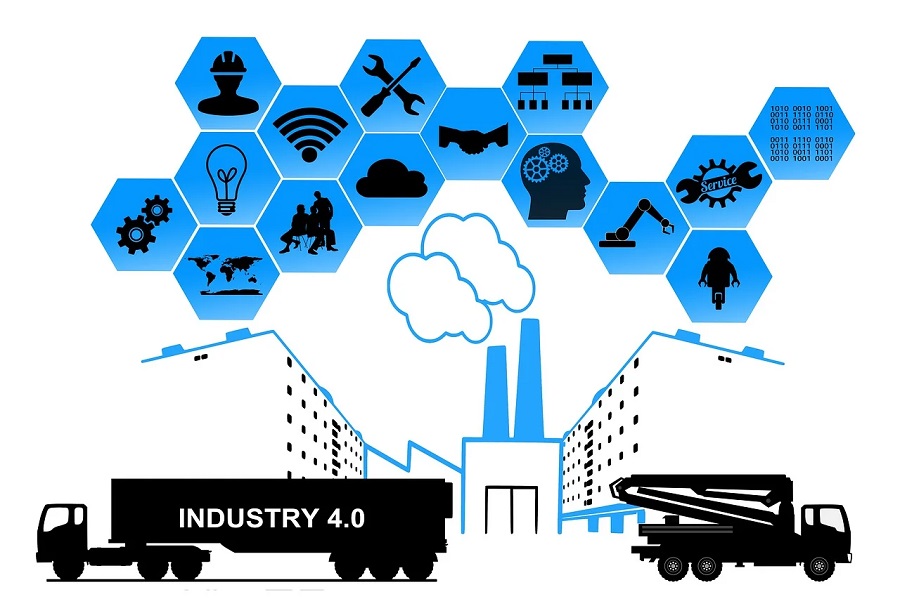In this article we present what the terms industralization and industry 4.0 are. If you are looking for information about the computerization of enterprises and broadly understood digital transformation, this article is for you.
Four industrial revolutions
Technological progress is undoubtedly happening before our eyes. The industry is constantly evolving and there is no indication that anything will change this. At least three industrial revolutions are commonly distinguished. And now there is talk of the fourth revolution taking place before our eyes.
The first industrial revolution dates back to the 18th century and is associated with the use of a steam engine in production. Previously, the power of human muscles was used in production processes, and only from the 18th century, steam engines began to be used, which led to the industrial revolution.
The second industrial revolution is the nineteenth century, and thus the moment when electricity was invented and mass production began to be used on a larger scale. Electricity has significantly reduced costs and accelerated production processes, therefore it must be boldly said that the invention of electricity is tantamount to an industrial revolution.
The third industrial revolution dates back to the 70s of the twentieth century, when production was automated on a larger scale using programmable controllers and computers. The implementation of modern technologies in manufacturing companies has made today’s industry much more effective than what was during the first or second industrial revolution.
Currently, the fourth industrial revolution is taking place. It is characterized by the use of much more modern technologies. Based on data and computer network, which makes the so-called intelligent factories, where employees and machines communicate via a network, and production processes take place almost autonomously. Thus, the concept of Industrialization nowadays takes on a completely new meaning than it was before.
Industry 4.0
Industry 4.0 is a concept that describes the process of technological and organizational transformation of manufacturing companies. It is the introduction of new business models and the extensive digitization of existing processes through the implementation of new information technologies. As a rule, IT solutions that fit into the Industry 4.0 idea rely on the communication of the Internet network, machines, devices and people. It all forms one coherent system that drives the digital transformation of enterprises.
In other words, Industry 4.0 introduces leading IT solutions in manufacturing companies to increase their efficiency. Thanks to Industry 4.0, it is possible to keep production costs low, increase production speed and improve efficiency in a broad sense.
Industry 4.0 is a general term that includes various types of information technologies. When talking about industry 4.0, one should bear in mind such technologies as artificial intelligence, Internet of Things and cloud computing. The element that combines all these technologies and at the same time is a key aspect of Industry 4.0 is data. It is the enormous amount of data and the ability to effectively use the data collected every day that make us talk about a digital revolution. It is estimated that the effective use of data is crucial for the business of the future. Even in 2015, 20 billion various devices and machines were connected to the Internet. However, according to forecasts, by 2030 the number of machines and devices connected to the Internet will increase to half a trillion. In other words, it means a huge increase in the number of devices connected to the Internet and a huge increase in the amount of aggregated data at the same time. Those companies that will be able to skillfully use aggregated data will gain a competitive advantage.
